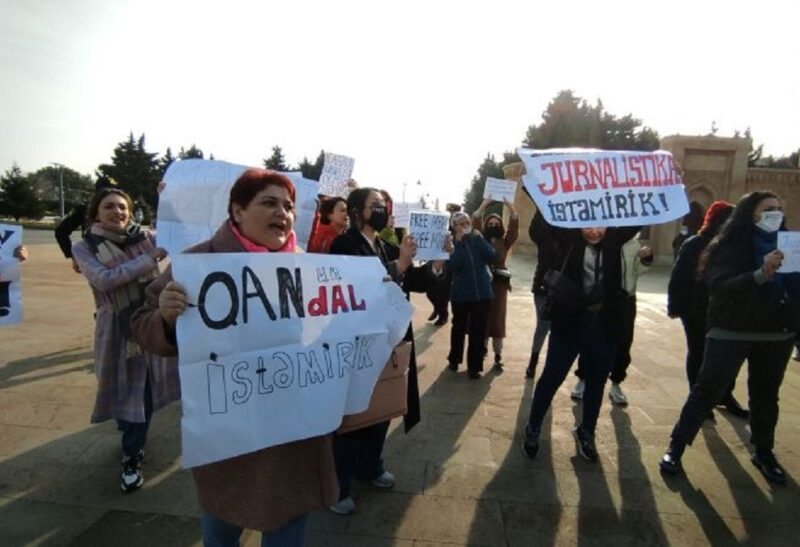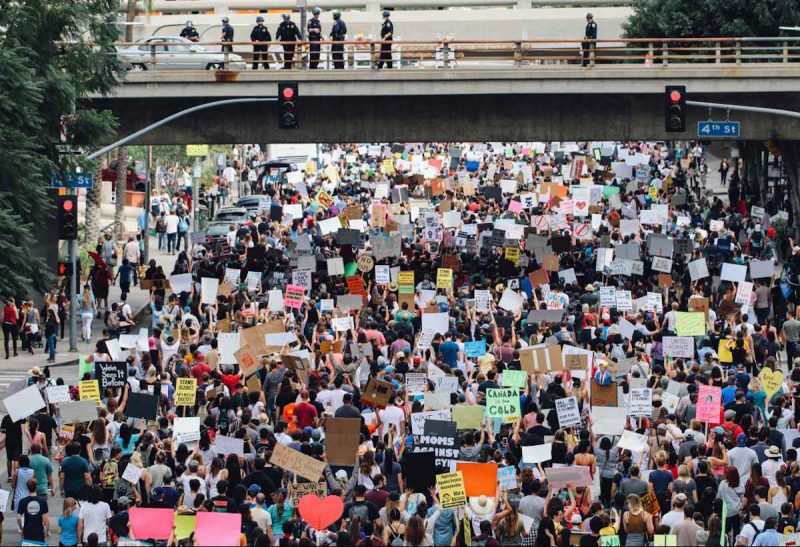Today in Baku the European Union and the Council of Europe
presented
the outcome of their cooperation with Azerbaijan on freedom of expression, media freedoms, and judicial independence. Some 4.7 million euros were allocated to Azerbaijan in April 2014. There is little positive to report – European taxpayers should indeed be worried.
The deal for almost five million euros was signed right before Azerbaijan took the chairmanship of the Committee of Ministers of the Council of Europe in May 2014. It came at a time when many in the diplomatic community based in Baku believed that such event would bring positive change, and – naively – that the chairmanship would be the beginning of true progress in the country. This mind-set of cosiness with Azerbaijan’s authorities was particularly strong in 2014 in Brussels and Strasbourg. Remember that at the time, the Council of Europe Secretary General
called
Azerbaijan a “young democracy.”
He has since been proven wrong: Azerbaijan is a grown-up repressive state, in which “freedom is subject to the whimsical pardons and arbitrary decisions of Azeri courts, not inalienable rights that we are born with,” as human rights defenders Intigam Aliyev, Rasul Jafarov and Anar Mammadli
wrote
following their release from prison.
Azerbaijan’s
promotion abroad instead led to repression at home
, and the deal is yet another example of a missed opportunity that became the basis for repression in the country, which began in May 2012 with the Eurovision Song Contest, when the government targeted those who brought international attention to human rights violations and to the destruction of property during a campaign to “beautify the city.” Later, in October 2013, the presidential election was marked by the arrests of key political figures such as Ilgar Mammadov, Anar Mammadli, and Bashir Suleymanli. Azerbaijan then escalated its imprisonment of human rights defenders and journalists even during its May–November 2014 chairmanship of the Committee of Ministers.
Consequence of Europe’s Positive Engagement Strategy
The logic for Europe was at the time that to avoid (even) more repression, it needed to invest more in whatever looks and sounds good. The Council of Europe’s
Action Plan agreed upon with Azerbaijan
in April 2014 is of that nature.
Two years later, the Council of Europe and the European Union today presented the results of their cooperation with Azerbaijan, which they agreed upon based on the positive mind-set of 2014.
The first programme of the cooperation is to support Azerbaijan in its application of judgments of the European Court of Human Rights. The second programme is about efficiency and quality of the judiciary in Azerbaijan.
The European Court has adjudged individual cases involving arbitrary detention, including a decision one should safely interpret as finding the detention of opposition leader Ilgar Mammadov politically motivated. During President Ilham Aliyev’s appearance at the Parliamentary Assembly of the Council of Europe on 24 June 2014, in an answer to Member of the Irish Parliament Michael McNamara, he
remarked
: “We respect the decisions of the European Court of Human Rights. Therefore, once again, the attempts to attack our country are absolutely groundless.”
In fact, Azerbaijan’s strategy at the Court has been to deal with cases individually on a case-by-case basis. As critical as the Court is in providing a means to obtain justice for aggrieved individuals, its effectiveness has been undermined by the Azerbaijani government’s failure to enforce judgments and engage in follow-up procedures. With Ilgar Mammadov’s continued detention, Azerbaijan goes a step further in showing clearly that some individuals are not to enjoy the protection of the Court.
The main partner of the programme for this objective is the Justice Academy, which is an agency of the Ministry of Justice. The control of the Ministry of Justice over the Academy allows it to ensure loyal judges instead of independent ones, just as the
Ministry does with lawyers
by controlling the Bar Association. Even worse, the programme foresees trainings through the HELP Programme of the Council of Europe, whose coordinator in Azerbaijan was none other than Intigam Aliyev, who was
released
on 28 March 2016 after almost two years behind bars, and who is the legal representative of many Azerbaijanis at the European Court.
The cynicism of these objectives related to Azerbaijan’s judiciary is simply sad.
The third programme is about fighting corruption and foresees that the Council of Europe and European Union programme will “facilitate public discussion on the National Anti-Corruption Action Plan (2016 – 2019), expert advice, and development of an implementation monitoring tool.”
Again, one must remember that one of the greatest experts on corruption in the country is journalist Khadija Isamayilova, who was
released
from prison on 25 May 2016. To fight corruption, one must admit corruption exists, identify responsible actors and hold them accountable. Let us keep in mind that Azerbaijan ranks 119th out of 168 countries in Transparency International’s
Corruption Perceptions Index
.
Finally, the programme also planned to spend 800,000 euros on media freedoms and freedom of expression, with the aim amongst others to “enhance the national legislation and media regulations in accordance with CoE standards” and “promote and ensure safety of journalists.” Since then: the Institute for Reporters’ Freedom and Safety has been put under investigation, its staff attacked, and its leader forced to
flee
the country; the office of Radio Free Europe / Radio Liberty in the country has been effectively closed; Meydan TV journalists are regularly harassed and attacked; and the murders of journalists Elmar Huseynov and Rafiq Tağı remain unpunished; just yesterday, Javid Huseynov was released (he was one of those arrested over the death of journalist Rasim Aliyev). In Reporters Without Borders’ 2016 World Press Freedom Index, Azerbaijan is ranked 163rd of 180 countries.
Today’s presentation in Baku was truly about showing the results of the actions taken under the positive mind-set of 2014. And there is not much to show.
Time to Record the Human Rights Situation in Azerbaijan
In fact, the situation has continued to deteriorate, and presidential powers have even
increased
following recent constitutional amendments. Europe must take this opportunity to question its positive mind-set of 2014. The European Union and the Council of Europe have given a lot to a government that has given little back – if anything. In line with
conclusions
of the United Nations Special Rapporteur Michel Forst following his visit to Azerbaijan in September 2016, Europe must request for Azerbaijan to “rethink [its] punitive approach to civil society.”
In fact, the mind-set has begun to change; at the United Nations and at the Council of Europe some States are more and more outspoken about human rights violations in Azerbaijan. Enough now indicates that Azerbaijan must be held to account and human rights violations recorded at these institutions, through clear and outspoken action at the Human Rights Council and the Committee of Ministers respectively.
True progress can only be achievable once Azerbaijan realises that its partners will not accept fake engagement and cosmetic changes any longer. Only then it will be possible to establish clear benchmarks and a timeline for changes in the country.



